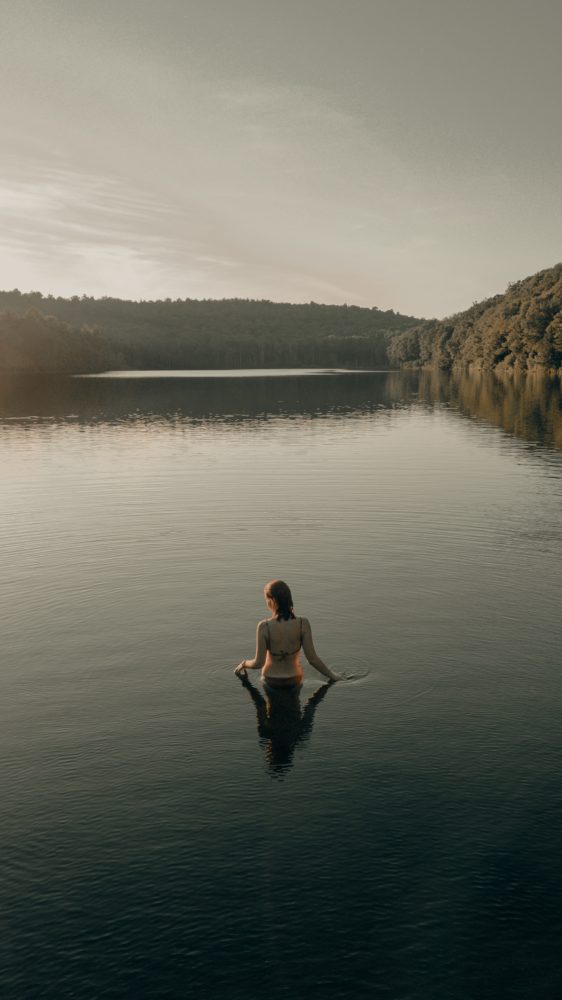This July, my fourteen-year-old daughter, who’s bug- and sun-adverse, who is obsessed with fancy hotels and delights in a mug that proclaims “I love not camping,” spent ten days hauling fifty pounds on her back through the Big Horn Mountains. Gwyn endured nose bleeds, boulder fields, and rehydrated textured vegetable protein. On good days she wiped her behind with moss; on bad days she used rocks and pinecones. When I listen to what she says about the trip, surely it was the most wretched experience of her life. But if I tune in to how she talks about it, she had a blast. She can’t wait to tackle the Rockies next summer.
You have to understand: As she was packing beforehand, Gwyn asked in all sincerity, “What am I doing?! I don’t even like hiking.” The previous summer’s misery in the Boundary Waters (sleeping in puddles, enduring clouds of mosquitoes, twice getting woken by counselors to sit in lightning position while storms blew through) had convinced her to sign up. Of course wilderness trips provide all sorts of good reasons to return—camaraderie with peers, the role model of excellent counselors, access to beautiful landscapes. What’s curious to me, however, are the benefits that spring directly from discomfort. Given Gwyn’s cushy lifestyle, when else will she know the rush of surviving hardship? The bonds that form only from shared adversity? The exhilaration at the top of a mountain overlooking landscape she’s traversed? The realization (daily, hourly, minute by minute) that she’s doing something she didn’t think herself capable of?
I’m most proud of Gwyn for embracing this befuddling paradox. Sometimes being wildly uncomfortable yields benefits you might never experience otherwise.
Humans gravitate toward comfort; Americans especially are convinced every hardship should be alleviated or eliminated. I feel it most strongly as a parent; I don’t want my child to suffer. And yet the wisdom I cherish most I’ve gleaned from my own suffering. How do I reconcile it?
By supporting Gwyn as she practices. By practicing it myself.
At six a.m. the day I was about to leave a lake I love, I foolishly exited my warm bed, pulled on my bathing suit, and headed down to the water. It was frigid. Steam rose from the surface. My every cell screamed NO! Shivering, I nonetheless took the plunge; I frantically, breathlessly water-wheeled into the middle of the lake, trying to warm up. Then there I was, a lone human sending ripples outward onto an otherwise untouched surface, cupped by blue mountains, buoyed by spring-fed waters, floating in a place I love that’s held me since childhood. Yes, discomfort can be a passage to bliss.
–Elizabeth
Photo by Clay Banks on Unsplash.
